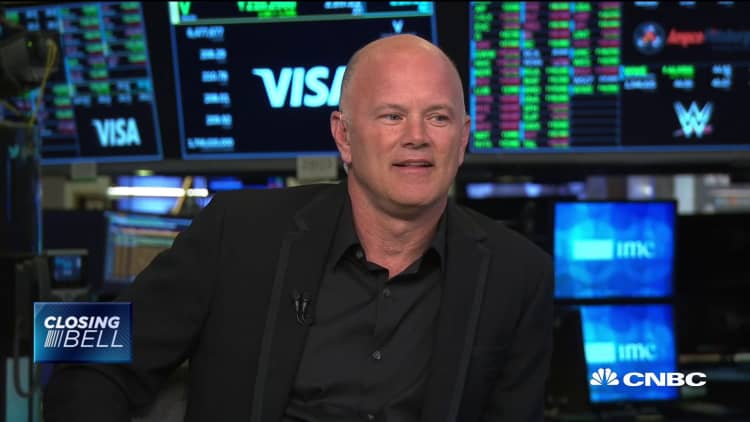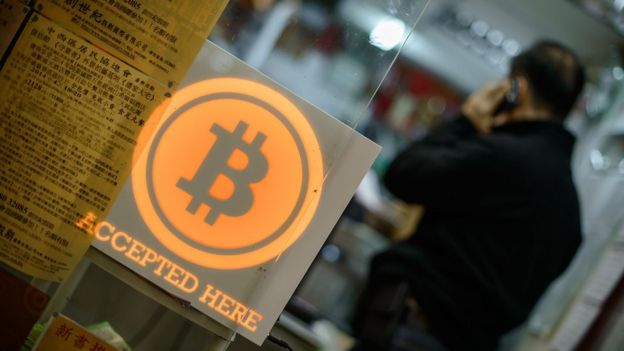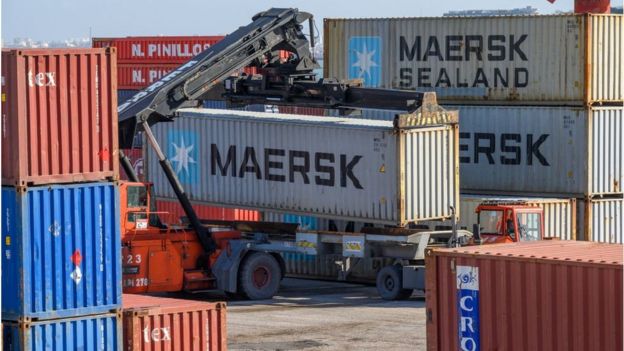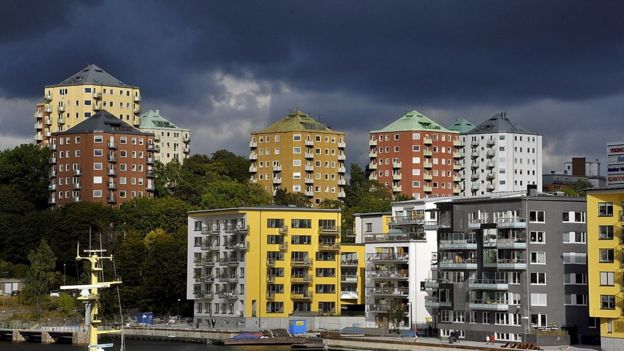intereses
- by armando linares requena
- 5 posts
-
The cryptocurrency known as Tezos is among the year’s best performers across the crypto market so far in 2020 and is showing no signs of stopping.In the latest move, Tezos exploded by another 24% before a slight pullback. Can the Tezos rally continue, or is an end to the monstrous rally finally in sight?
Tezos Adds 24% More Gains Intraday, Reaching 190% Year-to-Date
From the January low to the current high, the cryptocurrency altcoin known as Tezos has grown by over 190% – in just over a month.Year-to-date, it’s among the crypto market’s top-performing altcoins, easily besting even Ethereum’s rally where the asset doubled in value in less than 40 days. The latest move added to Tezos sizable returns, with another 24% surge on the day.
Related Reading | This Cryptocurrency Is Up Over 130% YTD, But Analyst Warns Not to FOMO
14 BTC & 30,000 Free Spins for every player, only in mBitcasino’s Crypto Love Affair! Play Now!
The cryptocurrency is also up nearly 400% from the bottom it set back in October 2019. The rest of the crypto market went on to set a lower-low in mid-December, which Tezos went on to set its first higher low – the first sign an uptrend is forming.
And an uptrend did indeed form, one that took the price of Tezos to new highs.
As if nearly 400% returns in a matter of four months wasn’t enough for holders of the altcoin asset, the cryptocurrency is also up well over 1,000%, bringing back deja vu of the alt seasons that would occur prior to the crypto bubble popping.XTZ Altcoin To Be Top Performer In Next Cryptocurrency Bull Run
Tezos’ insane rally is just one of many signs that the crypto bull market may finally be back. During that time, it wasn’t uncommon to see dozens of altcoins each at 1,000% or higher gains.The wealth generated during this time was the trigger that caused FOMO to surge across retail investors, who flocked to the asset class.
If this happens again, Tezos is only getting started.And while analysts were warning that the asset had gone parabolic and to not FOMO into a rally this late, those that didn’t take the advice are up another 200% since the warning was issued.
Related Reading | Altcoin Market Following Early Bitcoin Path Could Lead to Life-Changing Wealth Tezos
early has significant momentum behind it and is now in price discovery mode.
There’s no telling just how high the asset could trend, but given how powerful the recent parabolic rally has been, there’s likely to be at least a sizable pullback in the days ahead for holders of the explosive altcoin.
At over 1,000% returns from the absolute bottom, FOMOing into Tezos is a tough call – but buying the next dip may be wise if the next bull run truly is beginning, as it’ll be led by new altcoins like Tezos, Link, and many others.-
By
 Admin
Admin - 0 comments
- 1 like
- Like
- Share
-
By
-
- Bitcoin’s liquidity-driven rally is likely to continue throughout 2020, Michael Novogratz told CNBC on Friday.
- The cryptocurrency investor said large amounts of liquidity will help fuel the rally.
- “Right now bitcoin feels a little frenzied ... but I think by the end of the year we certainly take out the old highs,” he said.
- “Or at least we go to the old highs,” he added.

Michael Novogratz, CEO of Galaxy Digital, on crypto rally
Bitcoin’s liquidity-driven rally is likely to continue throughout 2020, cryptocurrency investor Michael Novogratz told CNBC on Friday.
“Right now bitcoin feels a little frenzied, and we could see it surge up, but I think by the end of the year we certainly take out the old highs,” Novogratz, head of cryptocurrency merchant bank Galaxy Digital, said on “Closing Bell.” “Or at least we go to the old highs.”
Bitcoin reached its highest levels on Dec. 15, 2017, when a unit of the cryptocurrency was valued at $19,650. It came crashing down into the $3,000 range the following year, but it has climbed back since then.
This week it eclipsed $10,000 for the first time since September, and it was around $10,330 late Friday afternoon. That represents a more than 40% increase from where it began the year.
“Coming out of the ashes, bitcoin has really developed its own lane as a store of value” compared with other cryptocurrencies, Novogratz said, brushing aside concerns that it could see another spectacular fall.Novogratz, a former Goldman Sachs macro trader, has long been a bitcoin bull.
But he said his present optimism stems from the large amounts of monetary stimulus around the world, particularly in China as a response to the coronavirus.
“The Chinese are about to pull two giant bazookas out and stimulate the heck out of the second-largest economy in the world,” said Novogratz. “That’s going to be good for Chinese stocks at one point, but that stimulus always finds its way around the world. So oil prices end up coming back up, and you get another surge of growth.”
Asked where that surge leaves bitcoin, Novogratz offered his year-end outlook.In fact, Novogratz said bitcoin could reach his estimated levels by the “halving,” which is expected to take place in May.
The halving, which takes place every four years, is a process by which the reward for people who mine bitcoin is reduced by half.It essentially cuts down the supply of bitcoin coming onto the market, helping to keep a limit on inflation.
The process is written into bitcoin’s underlying code, and previous halving events have preceded sizable bitcoin price increases.
The impending halving aside, Novogratz reiterated he believes liquidity is a propelling force not only for bitcoin’s rally but for other asset rallies too.Liquidity, he said, is “driving stocks. It’s driving crypto. It’s driving gold.”-
Francisco Gimeno - BC Analyst Novogratz selling his opinion for BTC's price here. We have repeatedly said here we can't even know what is going to happen tomorrow, as volatility is rife. There are many factors which affect prices going in either direction in a market which, although growing, is yet a small part of global financial markets. From Covid19 scare (Black Swan event?) to the BTC halving, the US elections, Chinese digital movements.... We hope for bitcoin to go up, but we will have, as always, to be calm and expect anything.
-
Mobile World Congress axed after firms quit over coronavirus fears | Technology ... (theguardian.com)The Mobile World Congress was scheduled to take place on 24 February. Photograph: Lluís Gené/AFP/Getty
The world’s largest mobile phone trade fair, Mobile World Congress, has been cancelled after scores of the world’s biggest technology and telecommunications companies pulled out over fears of the spread of coronavirus.
The MWC, which was due to be held in Barcelona on 24 February, was expecting more than 100,000 delegates from about 200 countries across the four days of the conference.
On Wednesday, GSMA, which organises the congress, was forced to admit it would have to axe this year’s event after more than 40 companies pulled out citing health and safety concerns.
Q&AHow can I protect myself from the coronavirus outbreak?Show
2017's top business stories: Whole Foods, hackers and a giant rabbit
The list of no-shows had grown to become a who’s who of the world’s biggest tech and telco firms including BT, the owner of mobile firm EE, Facebook, Nokia, Ericsson, the US chipmaker Intel, Cisco, Amazon, Vodafone and Germany’s Deutsche Telekom.
The Chinese firm Huawei, the controversial smartphone and 5G component maker that was scheduled to be one of the event’s biggest exhibitors, had flown employees to Spain to self-quarantine in advance.
The GSMA had banned travellers from Hubei, the city at the centre of the virus outbreak. Approximately 5,000-6,000 (5-6%) of the attendees each year have come from China.
The trade show’s organisers had attempted to allay concerns by announcing more stringent health and safety measures including a ban on handshakes and taking attendees’ temperatures.
However, this appeared to backfire, galvanising companies who had been monitoring the situation to confirm they would pull out.John Hoffman, the chief executive of GSMA, said the virus had made it impossible to hold the event.
The organisation will have to bear the cost of a full cancellation unless the Spanish government changes its position on the coronavirus and moves to declare a health alert.
It will also represent a significant loss to Barcelona and the city’s hospitality industry. The show is estimated to be worth about €500m (£420m) to the city and provides 14,000 part-time jobs for local workers.We won’t let Brexit come between us…
… and we hope you feel the same. Britain may be leaving the EU, but the Guardian remains committed to Europe, doubling down on the ideas and interests that we share. Our independent, fact-based reporting will inform Britain about Europe, Europe about Britain, and the rest of the world about both.
These are turbulent, decade-defining times. But we will stay with you, delivering quality journalism so we can all make up our minds based on fact, not fiction.
More people, like you, are reading and supporting the Guardian’s independent, investigative journalism than ever before. And unlike many news organisations, we made the choice to keep our reporting open for all, regardless of where they live or what they can afford to pay.
The Guardian will engage with the most critical issues of our time – from the escalating climate emergency to widespread inequality to the influence of big tech on our lives.
At a time when factual information is a necessity, we believe that each of us, around the world, deserves access to accurate reporting with integrity at its heart.
Our editorial independence means we set our own agenda and voice our own opinions. Guardian journalism is free from commercial and political bias and not influenced by billionaire owners or shareholders. This means we can give a voice to those less heard, explore where others turn away, and rigorously challenge those in power.
We hope you will consider supporting us today. We need your support to keep delivering quality journalism that’s open and independent. Every reader contribution, however big or small, is so valuable.
Support the Guardian from as little as €1 – and it only takes a minute. Thank you.
Support The Guardian
-
Francisco Gimeno - BC Analyst Is this an incoming Black Swan event? Rumours and fake media contribute to the fear. The best way to approach this is to be aware, to prepare for anything, and always consider the fundamentals of humanness our modern society has established.
-
-
Bitcoin bounces back over $10,000 amid coronavirus concerns | Technology | The G... (theguardian.com)On Sunday, bitcoin rose above $10,000 for the first time since September and by Wednesday was trading at $10,335 on Bitstamp. Photograph: Chesnot/Getty Images
Bitcoin has bounced back above $10,000 (£7,731), fuelled by investors seeking a safe haven amid fears over the economic impact of the coronavirus.
On Sunday, bitcoin rose above $10,000 for the first time since September and by Wednesday was trading at $10,335 on the Luxembourg-based bitcoin and cryptocurrency exchange Bitstamp.
It marks a significant shift in fortunes for the 10-year-old cryptocurrency, which hit a low of $3,196 in December 2018.
Bitcoin and other cryptocurrencies have joined gold as a safe-haven asset at times of economic or political uncertainty.
Trading in the cryptocurrency has been highly volatile and even after its latest bull run it remains well below its all-time high in late 2017, which was just short of $20,000.
While the coronavirus, which has been officially named Covid-19, is considered a factor in its latest surge, the main driver in the short-term is mostly attributed to the upcoming bitcoin “halving event” in May.
This will result in the number of bitcoins available to so-called “miners” being cut by half. The last time the supply was cut in 2016, bitcoin prices doubled and then surged to a record high the following year.“If bitcoin keeps going, this could well rekindle the debates as to whether bitcoin is money,” said Russ Mould, the investment director at AJ Bell.
“That in turn fuels discussion over whether it is worthy of consideration as investment as part of a balanced portfolio.”-
Francisco Gimeno - BC Analyst We continue to see different versions on why BTC prices go up or down. Any happening is enough for this. A feared pandemic, the future halving, anything is a reason for the pundits. The only certainty is volatility. Let´s not react on FUD or FOMO. Common sense is the rule.
-
-
Imagine you are out shopping and get to the till but your card doesn't work. It turns out that your bank has had a computer meltdown and none of its customers, including you, can pay for anything.
But what if the till had access to a record, or ledger, of the balance on your credit and debit cards that was updated anytime you bought something?Even with the bank's systems down your card would still work at the supermarket, because the till itself would know your balance.
That is just one possibility offered by a distributed ledger, also referred to as a blockchain. The technology has been around for more than a decade and has been heavily hyped.It sounds pretty handy, but in practice, it is hardly used. So what happened?
Image copyright
GETTY IMAGES
Image caption
Cryptocurrency Bitcoin is perhaps the best-known use of blockchainBlockchain has struggled to find a purpose, beyond powering cryptocurrencies like Bitcoin.
In that scenario, the blockchain acts as a universal record of every Bitcoin transaction ever made. The blockchain is a ledger, or log, of those transactions and users on the network collaborate to verify new transactions when they occur.
They're rewarded financially for this effort - an enterprise known as "Bitcoin mining".But the basic idea, of a ledger of information distributed around lots of different users instead of held centrally, has provoked a lot of interest.
Media captionBitcoin explained: How do crypto-currencies work?
Proponents have long argued it could be a better alternative to traditional databases.But how transformative would blockchain-style alternatives really be?
The shop tills example was suggested by Dave Birch, an author and advisor on digital financial services, who has been critical of some proposed blockchain schemes in the past."I'm prepared to buy that," he says, of the tills idea. "I think there's some value to it." More Technology of Business
More Technology of Business- What happens to all the old wind turbines?
- How tech is helping catch rats, wasps and bedbugs
- What can you use instead of Google and Facebook?
- Robot tanks: On patrol but not allowed to shoot
- Giant jet engines aim to make our flying greener

There are other ideas out there. Prof Gilbert Fridgen, a financial services expert at Luxembourg University suggests a distributed ledger system that keeps track of certificates and degrees issued by universities.
No one organisation would be responsible for it. Rather, copies of the ledger would be held by multiple parties and individuals would be able to check that records of their own qualifications were accurate.It would certainly by useful.
In 2018, a BBC investigation showed that there were thousands of fake degrees in circulation, so a decentralised system that tracks qualifications might appeal to employers.
That said, Prof Fridgen notes that nothing about a blockchain itself can stop some corrupt individuals trying to add fraudulent information to it. Additional checks are needed.If those trust issues can be solved, then blockchains could have real benefits.
News surfaced recently of members of the Windrush generation of migrants from the Commonwealth who have had their legal status questioned because records were not kept of their being granted leave to remain in the 1970s.
In the future, such errors might be avoided by keeping information like this on a distributed ledger instead of relying on the government to look after it.
Some big businesses have been incorporating the technology into their operations.
Image copyright
GETTY IMAGES
Image caption
Maersk tracks paperwork for goods using blockchain technologyTake shipping giant Maersk. It uses blockchain technology in TradeLens, a new system for tracking customs documentation on goods that are shipped internationally.
The idea is that any stakeholder in the process, from a port to a customs authority, can quickly look up details pertaining to a shipment.
Maersk says that 10 million shipping events are now registered in the system every week.
Unlike Bitcoin, TradeLens uses a permissioned blockchain, this is a non-public ledger to which access is controlled.
But a similar system could be achieved with other technologies such as cloud-based ledger databases that encrypt data and control who can access what information.
Another project of interest is the real estate system trialled by the Swedish land registry, Lantmäteriet.
A blockchain was designed to track documents during the sale of a property. The buyer and seller, brokers and banks involved could all take part in and keep track of the sale digitally. Image copyright
Image copyright
GETTY IMAGES
Image caption
Sweden's land registry experimented with blockchainWhile the trial proved such a scheme was possible, a change in legislation would be needed before the system could be scaled up in the future, explains Mats Snäll, chief innovation officer at the Swedish land registry.
"It was never integrated into the production system of the land registry," he tells the BBC.
In Thailand, cryptocurrency firm Zcoin developed a blockchain-based system so that members of the Thai Democrat Party could cast digital votes for their new leader in late 2018.
Instead of having to trust a central authority to count the votes, they were instead collected on the Zcoin blockchain.Votes were made at polling stations or via a mobile app, where voters needed to submit a photo of themselves when casting their ballot.
These digital votes were also audited by the election committee, a Zcoin spokesman tells the BBC. Zcoin says it is planning to announce a bigger scheme, involving "millions" of voters, in the near future.These are thought-provoking ventures, though a debate remains as to whether blockchain is absolutely necessary for any of them.
Some say that eventually blockchain-style systems will prove to be the most efficient option for organising data at scale. Entrepreneur Helen Disney is one of them."In many cases there is a cost saving to be made once you've got past the initial hurdle - obviously bringing in any new system is expensive," she says.
While blockchain bluster will surely continue, even sceptics like Mr Birch think there are some focused applications that could prove worthwhile. So far, blockchain might not have changed the world - but it has got a lot of people thinking.-
Francisco Gimeno - BC Analyst The blockchain technology has already passed its hype stage. Now realism and honest/sane scepticism puts it in its real space at this time. The tech is sound, the use cases are there, many in finch have embraced it. We believe blockchain implementation all around is already happening, but, as with other revolutionary techs global use needs time to growth at global scale.






